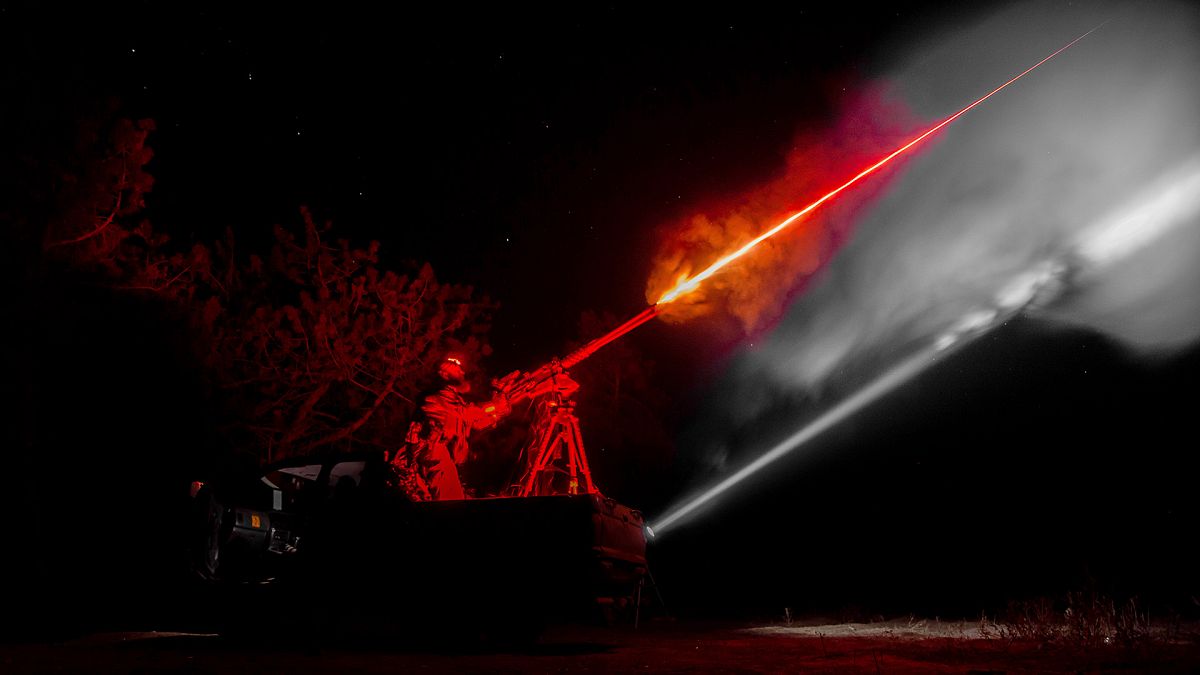Since mid-September, Ukraine has struck several ammunition depots deep inside Russia. How can these strikes impact Russia’s offensive operations?
Ukrainian strikes against facilities within Russia could impact offensive operations throughout the theatre in Ukraine if Kyiv forces have the materiel, capabilities, and permission to conduct such a strike campaign against logistics and support facilities within Russia at scale.
This is the latest assessment by the Institute for the Study of War think tank (ISW) following the most recent cases on Wednesday and Thursday when Ukrainian forces reportedly struck a Shahed drone storage facility in the Krasnodar region and an ammunition warehouse in the Republic of Adygea in Russia.
According to the Ukrainian General Staff, Russian forces stored around 400 Shahed drones at the facility near Oktyabrsky in Krasnodar Krai.
The ISW noted that Russian forces rely on Shahed drones to strike both frontline and rear Ukrainian settlements and cities and expend roughly 10,000 artillery shells per day against frontline Ukrainian positions.
The US-based think tank says that while the impact of a single strike is unlikely to significantly impact Russia’s war effort, repeated strikes against ammunition depots may force a decision point on the Russian military command to reorganise and disperse support and logistics systems within rear areas.
This would be done to mitigate the impact of such strikes at the expense of mass-optimised Russian logistics to support the war in Ukraine, according to ISW.
Ukrainian strikes timeline
Ukraine first struck the Toropets ammunition depot in the Tver region on 18 September, followed by other major hits on the Oktyabrskii depot in the same region and the Tikhoretsk ammunition depot in Krasnodar Krai on 21 September.
On Wednesday, Kyiv forces hit a missile and storage ammunition storage facility in Karachev in the Bryansk region. Then on Thursday, they struck the Khanskaya military airfield and an ammunition warehouse in the Adygea Republic.
A source from the Ukrainian security service SBU told The Kyiv Independent that during this latest attack, 57 warplanes, a trainer aircraft, and helicopters were based at the airfield.
The Ukrainian General Staff reported that Russian forces base Su-34 fighter-bombers and Su-27 fighter aircraft at the Khanskaya Air Base.
Ukrainian outlet Suspilne stated that according to its sources, Russian forces use the Khanskaya Air Base to refuel planes during air strikes against frontline Ukrainian units and settlements.
In almost each of these attacks, Russian regional authorities report that most of the launched Ukrainian drones have been intercepted and shot down.
Oil depot struck in annexed Crimea
On Monday, Ukrainian drones struck the largest fuel depot in illegally annexed Crimea. The strike triggered a huge fire raging since Friday, five days since the attack.
Igor Tkachenko, Moscow-appointed head of the local administration, at first confirmed that a fuel depot had caught fire without mentioning the attack. He later said that over 1,000 people had been evacuated as the flames spread to more than 2,500 square metres.
The Feodosia terminal has already been targeted by Ukrainian drones in March. The main fuel pipeline was damaged, causing a fire that took over an hour to extinguish.
Apart from Feodosia, only one other terminal of its kind located in Sevastopol serves the Russian military and Moscow’s Black Sea fleet.
The ISW said that Ukraine’s long-range strikes could have even more impact in the future if Kyiv is given the go-ahead to use Western systems.
Together with the continued development of Ukraine’s own long-range strike capabilities, the lifting of restrictions may allow Ukrainian forces to exploit such Russian vulnerabilities before Moscow deploys countermeasures more effectively.
“Ukrainian strikes against facilities within Russia could impact offensive operations throughout the theatre in Ukraine if Ukrainian forces have the materiel, capabilities, and permission to conduct such a strike campaign against logistics and support facilities within Russia at scale,” the ISW said.
Additional sources • ISW
Read the full article here
